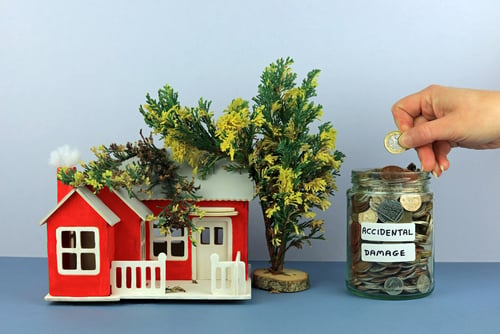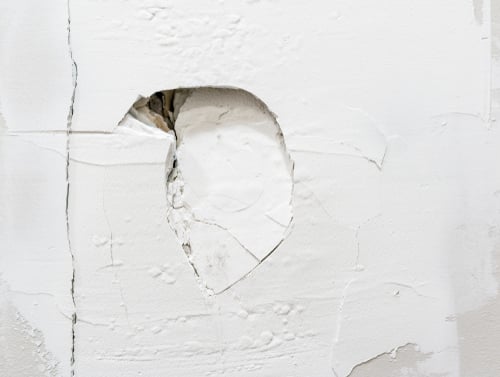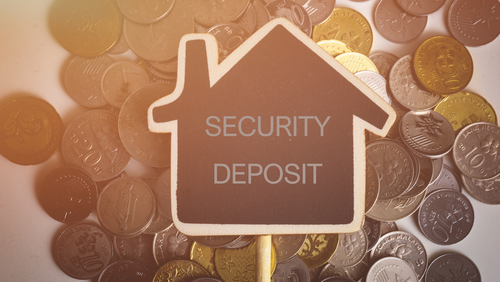
Let’s face it. Sometimes, accidents can happen within a rental property. Whether you accidentally break a window or your pet causes floor damage, it’s not uncommon for these scenarios to occur in a rental. However, even if it’s not your fault, it’s crucial for tenants to report any accidental damages to landlords or property managers. If you’re not sure what to do if you cause accidental rental property damage, just keep reading.
Who Is Responsible for Accidental Rental Property Damage?
Accidental rental property damage happens more than you might imagine. First, however, even if it’s minor damage, it has to be reported to your landlord or property manager. Then, depending on the type of damage and how much it will cost to fix, the expenses will likely be taken from your security deposit.
Most landlords implement a security deposit along with the first month’s rent when a new tenant moves into a rental property. The security deposit is typically priced similarly to the monthly rent and covers tenant damages throughout their tenancy.
But, what happens if damages exceed the security deposit amount? Your landlord is responsible for sending you an itemized list of damages and how much each one will cost to repair. If the rental property damages exceed the security deposit amount, tenants are responsible for paying these expenses.
Even if you cause accidental rental property damage, it’s still your responsibility. Luckily, if you have renter’s insurance, you could be saved from paying some out-of-pocket expenses for damages. Depending on what type of damage you cause, the fees could range from just a couple of dollars to thousands of dollars.
Here are some examples of minor accidental damages and what normal wear and tear may look like to your landlord or Washington DC property management company.
Examples of Possible Tenant Damages

Accidental rental property damage typically doesn’t equate to extensive destruction. Chances are if it’s an accident, the damage isn’t necessarily too extensive. However, accidental damages may occur if you have pets or small children in your rental unit.
Some examples of possible tenant damages include:
- Stained, ripped, or burned carpeting
- Tears in linoleum flooring
- Torn or missing curtains, blinds, or window coverings
- Broken windows
- Torn or missing window screens
- Large holes or dents in the walls
Even if it’s not necessarily your fault, tenants are responsible for damages in a rental unit. So, whether you, your friends, pets, or children cause damage, you’ll likely be the one paying the price.
However, there are a few exceptions. For instance, most lease agreements state that normal wear and tear within a rental unit is okay. Normal wear and tear in a rental unit
What Is Normal Wear and Tear?
Defining “normal wear and tear” within a rental unit can be difficult sometimes. After all, what constitutes “normal” wear is highly debated. Therefore, it can cause some misunderstandings between tenants and landlords.
However, it’s still important to note what may come up as normal wear and tear in a rental unit. Here are some common examples:
- Nail holes in the wall from hanging pictures or decor
- Loose faucets
- Small scuff marks on the walls or paint
- Cracked light switch plates
- Faded or cracked paint on the walls
- Light scratching on the floors or countertops
- Worn or loose door hinges
- Worn carpet or hardwood flooring
- Slight warping of doors or windows
Essentially, normal wear and tear consist of things that are expected due to the everyday use of the rental unit. That said, if you aren’t sure whether you’ve caused accidental rental property damage or just normal wear and tear, make sure you contact your landlord either way. Otherwise, minor damages can worsen over time, leaving you responsible for the expenses.
When Should You Notify Your Landlord of Damages?
As soon as you notice damages to your rental property, it’s time to contact maintenance or your landlord directly. Even if it’s an accident, it’s best to report damages as soon as possible. Once you’ve contacted maintenance or your landlord, they can assist with assessing and fixing the damage.
Remember that causing accidental rental property damage doesn’t mean you will face charges or eviction. Therefore, don’t avoid reporting damages or telling your landlord about any issues in the rental. Typically, your landlord will be understanding of accidents and work with you to determine a reasonable solution.
 How Do Landlords Determine Damage?
How Do Landlords Determine Damage?
Determining rental property damage requires landlords to have an extensive record of the property’s condition before and after each tenant. As such, most landlords or property managers require move-in and move-out checklists before and after each tenant.
Using these checklists can help both parties compare the rental unit’s condition throughout the lease term. Then, if a tenant does cause damage during their lease, it would be evident during the inspection process.
Move-out inspections are commonly done 24-48 hours after a tenant moves out of a rental property. Then, if tenant damages are discovered, landlords have limited time to deduct costs and provide documentation for any damages. If damages are discovered, landlords must provide tenants with an itemized list of damages and how much of the security deposit is deducted.
Whether your landlord withholds part of your security deposit or all of it, they have to do so in a time-sensitive matter. Although each state has different laws and guidelines, most landlords have around 15 to 60 days to return your deposit. If they fail to do so, tenants may potentially sue for up to three times the withheld amount.
Consequences of Not Reporting Accidental Rental Property Damage
Accidental rental property damage is still considered damage. As such, it’s vital to report any and all damages immediately to avoid further destruction of the rental property. If it’s an accident, be open and honest with your landlord or property manager. Most of the time, they will be understanding and may even work with you to get damages fixed.

However, you could face the consequences if you neglect to report damages or the destruction of a landlord’s property. For instance, even accidental damage can result in further property destruction if it goes unrepaired. Then, during an inspection or move-out report, considerable damages can result in your security deposit being entirely or partly withheld.
Rental Property Managers are Here to Help
As most renters know, accidental rental property damage can happen. Whether your dog rips up the carpet or your house guest accidentally breaks a window, tenants are responsible for damages in a rental unit. Luckily, you don’t have to handle the situation all alone. However, if you notice areas in your rental that could use some maintenance, don’t hesitate to contact your landlord or property manager.
Bay Property Management Group offers comprehensive rental services to landlords, no matter how many properties they own. We can help with tenant screening, rent collection, maintenance, and more. Contact BMG today if you need rental management services in Baltimore, Philadelphia, Northern Virginia, or Washington DC.

